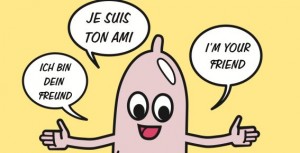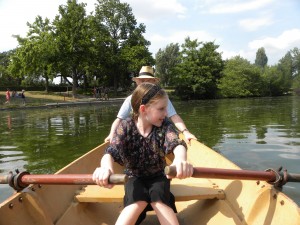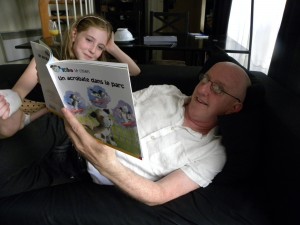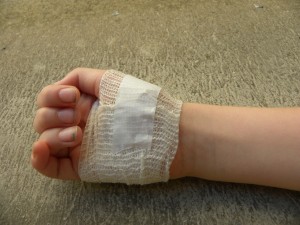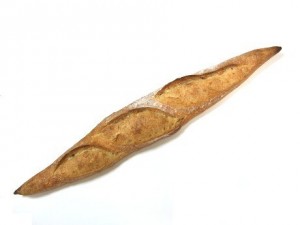1. This picture, even though it’s translated in several languages, is still an enigma to Ella. The signs are everywhere in Paris. Since I never answered when she asked me what it is, she’s invented her own explanation. “There’s the funny hotdog man again,” she says, pointing, when we walk past. Each time I hope no one within earshot speaks English.
2. As I stood at the counter of a cafe to drink an espresso, the barwoman called Ella “poupée.” I know this means doll, but when I returned home I looked it up, to see if it’s a common endearment. My dictionary told me that the English translation is “toots.” I pity the poor French tourist in America, thinking he’s so au courant, “toots”-ing American children.
3. Ella has a French-French dictionary for beginners, a reference we’re told all young French children use. There are several maps at the end, including one of the United States, with pictures to help new readers. Imagine my surprise when I saw the White House placed in the upper left, in the state right above Oregon. Who knew our capital had moved to the Pacific Northwest?
4. Ella enjoys ordering herself, and every time, after she asks for a baguette or sandwich or chevre, the merchant responds, in French, “That’s all?” “Ca suffit,” Ella says (that’s enough), prompting a laugh. “Why do they keep laughing at me?” Ella asked me today. I told her ça suffit might sound funny coming from a kid. Maybe it’s what grown-ups say to kids who drive them crazy. “Arrete,” I can imagine them saying. “Stop. Ca suffit! Cut it out!”
